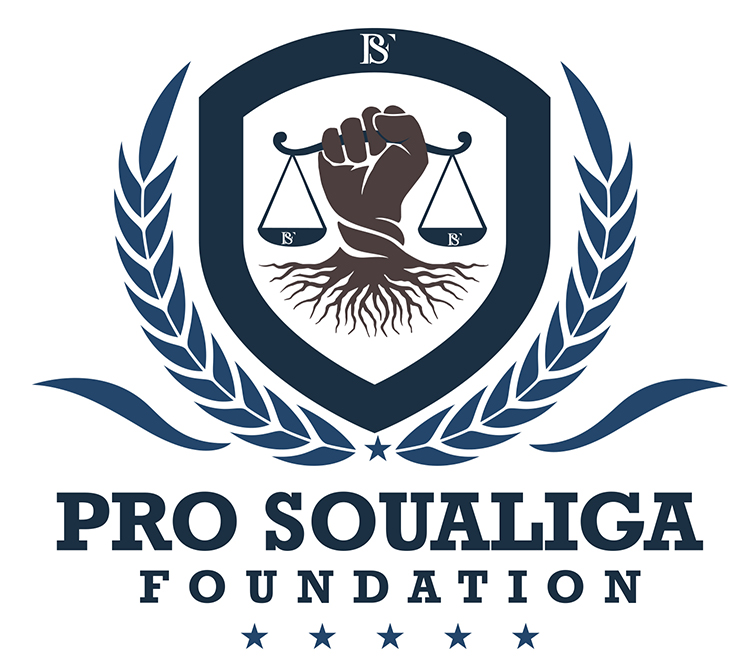Pro Soualiga calls for de-colonization summit

PHILIPSBURG — In its latest attempt to promote its de-colonization agenda, the Pro Soualiga Foundation calls in a press statement for an “urgent top summit” of the six islands of the former Netherlands Antilles with the argument that the Kingdom Charter has no legal basis and that the “fictitious Kingdom of the Netherlands” has collapsed: “In fact, it never came into existence,” the foundation states, adding a jubilant exclamation mark to that observation.
So far, there has been no reaction from Curacao, Aruba, Bonaire, Statia or Saba about their willingness to support the initiative for this summit.
Pro Soualiga claims in its statement that there is a “looming constitutional crisis” in the kingdom and that the Kingdom Charter is now “formally invalid.”
At the end of its almost 1200-words long statement, Secretary Renate Brison writes that the information it provides “might appear quite new and confusing.”
What are the points Pro Soualiga makes in its statement? Firstly, the foundation notes that “the six islands of the former Netherlands Antilles remain firmly on the United Nations list of Non-Self-Governing Territories and under Article 73 of the UN Charter.”
While Renate Brison assures readers that his information is one hundred percent accurate, information contained in minutes from meetings of the United Nations General Assembly suggest otherwise.
When the representative of Honduras included Aruba, Curacao and Surinam during a plenary meeting on December 1, 1960, in a list of colonial possessions, the representative of the Dutch delegation, Einaar reacted as follows: “We in Surinam and the Netherlands Antilles are proud of our full self-government and cannot accept being called colonies.”
The minutes of the 557th plenary meeting of the UN General Assembly of December 15, 1955, contains support for the Kingdom Charter in Resolution 945 (X): “…. that the people of the Netherlands Antilles and Surinam have expressed, through their freely elected representative bodies, their approval of the new constitutional order.”
Furthermore, the minutes state that the assembly “Expresses the opinion that cessation of the transformation of information under article 73e of the Charter in respect of the Netherlands Antilles and Surinam is appropriate.”
Pro Soualiga has referred time and again to this article, most recently in a court case against the Netherlands where the foundation’s demands were declared inadmissible.
Article 73e of the United Nations Charter states that UN-members accept “as a sacred trust” the obligation to promote the well-being of the inhabitants of these territories. This refers to territories whose people had not yet attained a full measure of self-government.
Article 73 stipulates the obligation to “transmit regularly to the Secretary-General, for informational purposes, subject to such limitation as security and constitutional considerations may require, statistical and other information of a technical nature relating to economic, social, and educational conditions in the territories for which they are respectively responsible.”
Pro Soualiga maintains that the Netherlands is still obliged to abide by this article.
The foundation also bases its claims on the so-called Uruguay-amendment to Resolution 945. On April 25, 2017, the Executive Council of Statia wrote to (then) State Secretary of Kingdom Relations Ronald Plasterk about this amendment that Uruguay was of the opinion that the Netherlands Antilles and Surinam were still not fully self-governing. “The amendment was intended to offer the peoples of the Netherlands Antilles and Surinam a safeguard, an opportunity of coming at a later date to knock at the door of the United Nations, should the need arise.”
Pro Soualiga repeats this statement in its latest press release. The fact remains however, that the United Nations did take the Netherlands Antilles off its list of non-self-governing territories, thereby indirectly acknowledging the measure of self-government the islands had obtained by signing off on the Kingdom Charter.
In the recent court case on April 23, the Netherlands acknowledged that there is no UN-resolution that states verbatim that article 73e no longer applies to the Netherlands. The foundation interprets this as follows: “With that admission, the entire fabric of the Kingdom has become undone. For here the Dutch State admits that the Netherlands Antilles were never decolonized. If the islands were not decolonized they can never, lawfully, form part of any Kingdom of the Netherlands.”
On September 27, 2019, State Secretary Knops wrote to the chair of the Dutch parliament that the United Nations had removed the Netherlands Antilles and Surinam from the list of non-self-governing territories. That the islands of the former Netherlands Antilles are not on that list is a fact.
But Pro Soualiga claims to know “with one hundred percent certainty” that the UN never removed the Antilles from the list. How come? “The islands were omitted from the list of non-self-governing territories in 1963 due to an administrative oversight by the UN Committee charged with updating the list in 1963.”
The statement lacks any substantiation for this claim. Up to this day, the United Nations website lists the Netherlands Antilles on its list of former non-self-governing territories, affirming the status change in 1955. In a footnote, the UN states: “By the communication dated 30 March 1955, the Government of the Netherlands transmitted to the Secretary-General the constitutional provisions embodied in the Charter of the Kingdom of the Netherlands promulgated on 29 December 1954 (A/AC.35/L.206). By resolution 945 (X) of 15 December 1955, the General Assembly, inter alia, expressed the opinion that cessation of the transmission of information under Article 73 e of the Charter in respect of the Netherlands Antilles and Suriname was appropriate. In 1975 Suriname became independent.”
Nevertheless, Pro Soualiga sticks to its position, stating that it knows from “other sources” that “the UN never formally declared the Netherlands Antilles decolonized, therefore the islands are still formally on the UN list of non-self-governing territories.”
We have to agree with Pro Soualiga Secretary Renate Brison: the information he provides in his press statement is confusing.


























